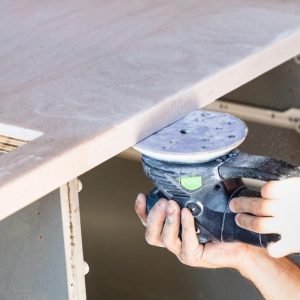FG Countertop Resurfacing vs Replacement
When it comes to revitalizing your kitchen or bathroom, the choice between resurfacing and replacing countertops is a pivotal decision. Both options offer unique advantages, but the cost factor often plays a significant role in making the final choice. In this article, we will delve into the comparison between the cost of resurfacing and replacing countertops, helping you make an informed decision for your home improvement project. Contact us to learn more about bathtub refinishing san diego
Cost of FG Countertop Resurfacing vs Replacement

Resurfacing Countertops: A Budget-Friendly Alternative
Resurfacing, also known as refinishing or reglazing, involves applying a new surface layer over the existing countertop material. This process is a cost-effective alternative to complete replacement, allowing homeowners to breathe new life into worn or outdated surfaces without breaking the bank.
One of the primary advantages of resurfacing is its affordability. The cost of materials and labor is significantly lower than that of a full replacement, making it an attractive option for those on a budget. Moreover, resurfacing projects typically take less time to complete, minimizing disruptions to your daily routine.
Factors Influencing Resurfacing Costs
While resurfacing is generally more budget-friendly, several factors can influence the overall cost of the project. The type of countertop material, the extent of surface damage, and the size of the area being resurfaced all play a role in determining the final expense.
Additionally, the skills and experience of the professionals hired for the job can impact costs. It’s essential to choose a reputable resurfacing service to ensure a high-quality finish that not only looks great but also stands the test of time.
Replacing Countertops: A Long-Term Investment
Replacing countertops involves removing the existing surfaces and installing entirely new materials. This option provides homeowners with the opportunity to choose from a wide range of materials, styles, and finishes, customizing their space to meet specific aesthetic and functional preferences.
While replacing countertops is often a more substantial upfront investment compared to resurfacing, it may be a prudent long-term choice. High-quality, durable materials can increase the lifespan of your countertops, potentially saving you money on future repairs or replacements.
Factors Influencing Replacement Costs
The cost of replacing countertops varies based on factors such as the chosen material, installation complexity, and the size of the area being renovated. Granite, quartz, and marble are popular choices, each with its price point.
Installation costs should also be considered. More intricate designs or unique layouts may require additional labor, impacting the overall budget. Homeowners should carefully weigh the aesthetic and functional benefits of new countertops against the associated costs.
Choosing the Right Option for You
When deciding between resurfacing and replacing countertops, it’s crucial to consider your budget, the condition of existing surfaces, and your long-term goals for the space. If you’re looking for a quick and cost-effective solution to refresh the appearance of your countertops, resurfacing may be the ideal choice.
On the other hand, if you have the budget and are seeking a more substantial transformation with a wide range of customization options, replacing countertops might be the better fit. While the upfront cost may be higher, the investment can pay off in terms of durability, aesthetics, and overall satisfaction.
Conclusion:
In the world of home improvement, the choice between resurfacing and replacing countertops ultimately boils down to your budget, preferences, and the condition of your existing surfaces. Whether you opt for the affordability of resurfacing or the transformative potential of replacement, it’s crucial to work with experienced professionals who can guide you through the process.
